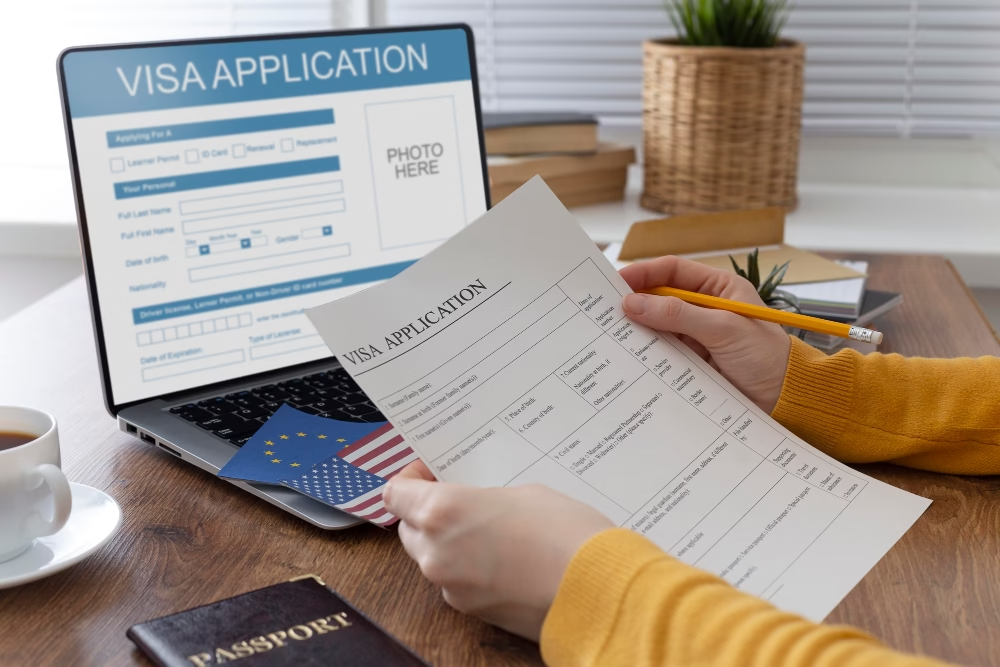Applying for a visa from Nigeria is more than just filling forms or submitting your passport. One of the most important parts of the entire process is providing proof that you can support yourself financially. This requirement is known as proof of funds. For many Nigerians, this is where their visa application is either accepted or denied.
Whether you want to travel for tourism, school, or work, you must convince the embassy that you have the financial means to care for yourself while abroad. Sadly, most visa rejections from Nigeria are linked to weak or suspicious financial documents. If your money story doesn’t make sense to the visa officer, they will not give you a second chance.
What Is Proof of Funds?
Proof of funds simply means evidence that you have enough money to cover your expenses in the country you’re visiting. This includes feeding, accommodation, transportation, tuition (if you’re schooling), and even your return ticket to Nigeria.
Visa officers use this to determine if you’re financially capable or likely to become a burden in their country. If you can’t convince them, they’ll assume you’re not ready to travel.
Why It Matters in Every Visa Application
Embassy officials do not know you personally. They judge you solely based on the documents you submit. Even if every other part of your application is perfect, weak financial proof can ruin everything.
For example, if you’re applying to study in Canada, the embassy wants to be sure you can afford both tuition and living costs. If you’re applying to visit the UK for a holiday, they want to know you can afford your hotel, feeding, and movement without relying on illegal work or handouts.
They just want to see that you’re responsible and have a proper plan for your stay.
How Much Money Should You Show?
There is no fixed amount that applies to every country, but each embassy has guidelines.
For a Canadian study visa, you need to show at least CAD 10,000 for your living expenses. That’s different from your tuition, which may cost CAD 15,000 to 20,000 per year. If you’re applying for one year of study, your total proof of funds should show CAD 25,000 or more. In Naira, that’s over ₦25 million as of 2025.
For UK tourist visas, it’s common to show between GBP 1,000 and GBP 2,000 depending on the duration of your trip. You need to convince the embassy that the money you have is enough to pay for your hotel, feeding, local movement, and return ticket.
The golden rule is this: your bank account should match your travel plans. If you say you want to go on a two-week vacation in London, but your account balance is ₦300,000, it may not be taken seriously.
Which Documents Count as Proof of Funds?
Most embassies prefer personal bank statements from a reputable Nigerian bank. Your bank statement should cover at least the last three to six months. It must show regular income or savings. Avoid accounts that have been dormant for long and suddenly receive large deposits before printing. That will raise questions.
If you’re not the one funding the trip, and someone else is sponsoring you (maybe a parent, spouse, or employer), you’ll need to submit their documents. This includes their bank statement, an official letter confirming they are your sponsor, a valid ID, and proof of your relationship. The more genuine and detailed the sponsorship letter is, the better.
You can also submit other financial documents to support your case. These include fixed deposit certificates, property documents, investment records, or even scholarship award letters. These documents show that you have valuable assets or strong financial backing.
If you’re self-employed or a business owner, include your business registration, tax documents, and company account statements. The embassy wants to see where the money is coming from and how stable it is.
Common Mistakes Nigerians Make with Financial Proof
One major mistake many Nigerians make is dumping a large sum of money into their account shortly before printing the statement. If your account has had ₦20,000 for five months and suddenly shows ₦3 million just two days before your application, you will likely be flagged.
Visa officers are trained to spot suspicious behaviour. If you must deposit large funds, be sure to explain the source. Did you sell land? Receive a gift? Get a business payment? Write a simple letter explaining it, and provide supporting documents.
Another mistake is choosing a sponsor you can’t explain. If someone claims to be sponsoring you but you can’t prove your relationship or show a long-standing connection, your application might be rejected.
Some applicants even try to submit fake bank statements. Embassies now verify statements electronically or directly with banks. If you’re caught, you can be blacklisted permanently. That’s a high price to pay.
Also, many people fail to tie their financial proof to their travel plans. Your money must align with your reason for traveling. For example, if you’re studying, your account should show you can pay tuition and survive in that country for a year. If you’re visiting for two weeks, your balance should cover the trip comfortably.
How to Build a Strong Financial Profile
First, plan ahead. Don’t wait until the last minute to start preparing your bank account. Save regularly, let your income flow naturally, and avoid suspicious movements. If you’re self-employed, ensure you can explain how your money is made. Show your CAC documents, tax clearance, or evidence of your business activities.
If you’re using a sponsor, their documents must also be clean. Let them write a detailed letter stating their intention to support you, and back it up with proof. This includes their ID card, payslips, and bank statements. Also explain your relationship—whether it’s a parent, sibling, friend, or employer.
For students, if you have a scholarship or bursary, attach the official award letter showing how much it covers. Let the embassy understand how the scholarship fits into your visa application. The more clear and complete your documentation is, the better your chances.
Real-Life Example: How David Got His UK Study Visa
David wanted to study in the UK in 2024. He had been saving since 2023. His bank statement showed steady monthly savings over several months. He had about ₦7 million in his account at the time of application. His dad, who runs a real estate business, also submitted his company account and a detailed sponsorship letter. David attached his admission letter, tuition invoice, and a letter from his employer approving study leave.
His application was straightforward, consistent, and well-documented. He didn’t try to hide or fake anything. His visa came out in less than three weeks.
If You Don’t Have Enough Money, What Should You Do?
Don’t rush to apply if your funds aren’t ready. Instead, give yourself time to prepare. Look for reliable sponsors. Consider applying for scholarships. If you have family or friends abroad, speak to them about supporting your trip with legal and traceable documentation.
You can also apply for a less expensive destination or study program that matches your current financial status. It’s better to wait and apply strong than to face rejection and waste both money and hope.
Final Thoughts
Proof of funds is not about impressing the embassy. It’s about showing them you are financially stable and ready for your trip. Every single document must tell the same story. Save regularly, avoid sudden deposits, explain large payments, and submit documents that match your real lifestyle.
Honesty, clarity, and planning are what embassies want to see. Don’t fall for fake agents or shortcuts. Don’t panic if you’re not yet financially ready. Prepare properly, and you’ll get there.
Stay connected with Krain Naija News for honest visa application tips, scholarship opportunities, job updates, and reliable travel information designed especially for Nigerians. We bring you the real stories and practical guidance that help you chase your dreams without stress or scams.


